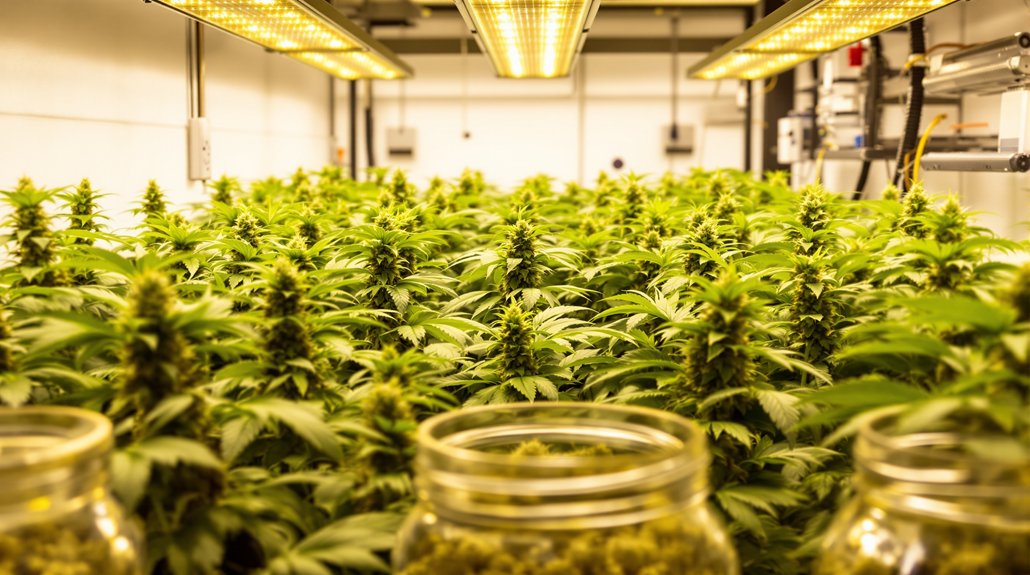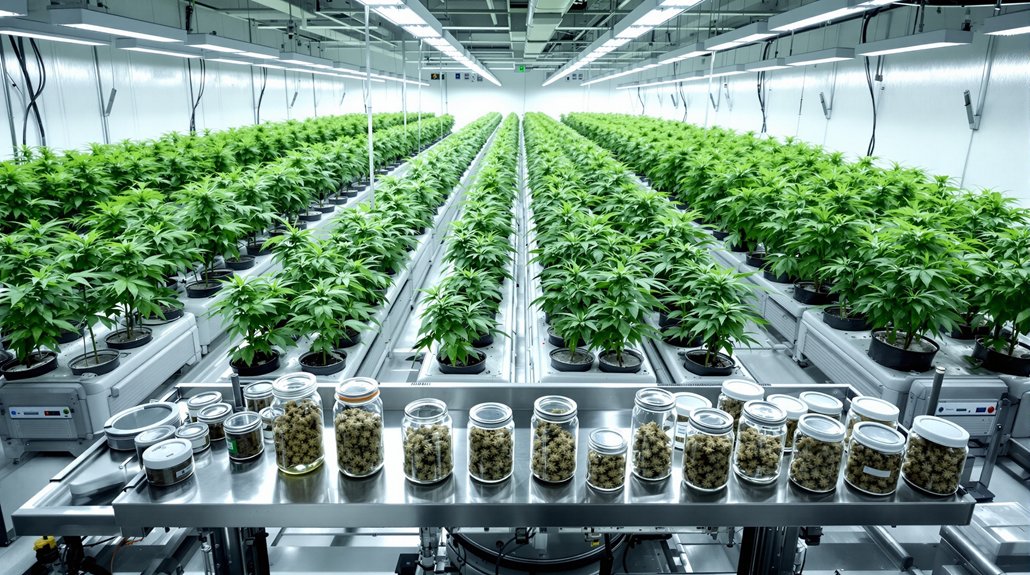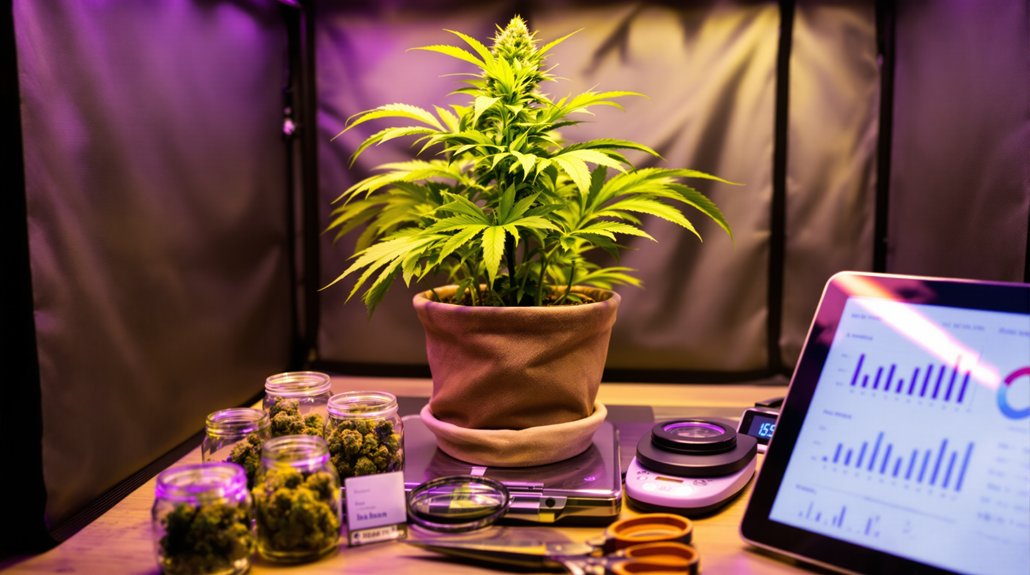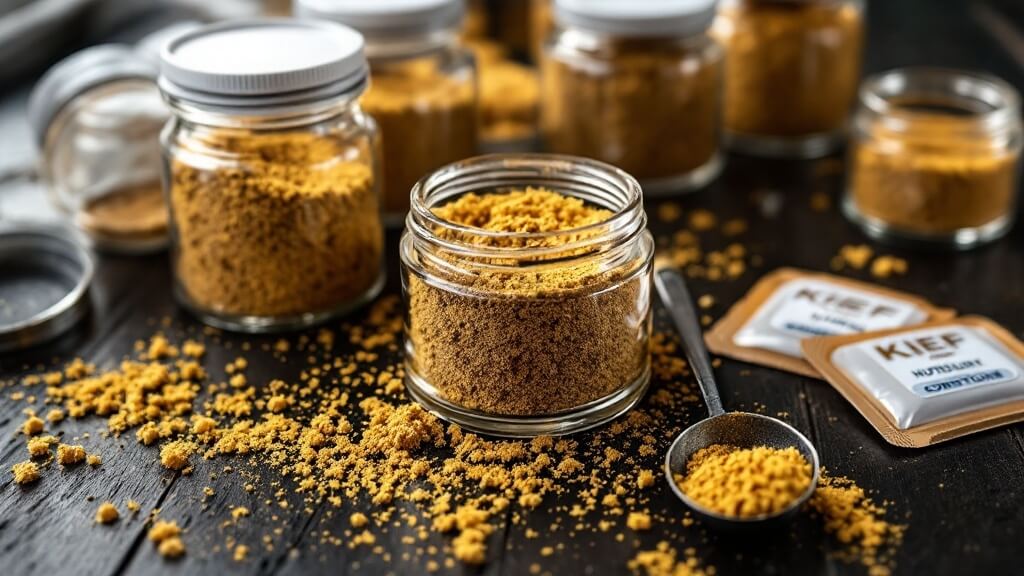A microbusiness license allows small-scale cannabis operators to vertically integrate their operations, combining cultivation, manufacturing, and retail sales under one permit. These licenses typically cost $1,000 to $4,500 and target economically disadvantaged individuals and disabled veterans. Direct-to-consumer sales eliminate intermediary costs, potentially achieving gross margins up to 75% while maintaining quality control throughout the supply chain. The streamlined approval process enables quicker market entry compared to large-scale permits. Further exploration reveals additional operational advantages and strategic considerations.
Understanding Microbusiness License Requirements and Operational Benefits

How do aspiring cannabis entrepreneurs navigate the complex landscape of microbusiness licensing while understanding the unique advantages these permits offer?
Microbusiness licenses target economically disadvantaged individuals and veterans with disabilities, requiring majority ownership from these groups. Applicants must be at least 21 years old, pass background checks, and pay fees ranging from $1,000 to $4,500 depending on the state.
These licenses offer significant operational benefits, including lower application costs compared to large-scale permits and streamlined approval processes. The integrated nature allows licensees to control cultivation, manufacturing, distribution, and retail from a single location, increasing operational flexibility.
This structure reduces barriers to entry, encourages local entrepreneurship, and enables profitability at smaller scales while fostering sustainability for small operators. Microbusiness licenses also support job creation opportunities within specific locations, strengthening local economic development. In Missouri specifically, microbusiness wholesale facilities can cultivate up to 250 flowering plants at any given time, providing a clear operational framework for small-scale cannabis businesses.
Leveraging Direct-to-Consumer Sales Through Vertical Integration

Many microbusiness license holders discover that vertical integration creates unique opportunities for direct-to-consumer sales that larger cannabis operations often cannot replicate. By controlling production, processing, and retail operations under one license, these businesses eliminate intermediary costs while boosting profit margins considerably.
Vertical integration enables microbusinesses to maintain strict quality standards throughout every stage, from cultivation to final sale. This control reduces supply chain risks, minimizes delays, and supports faster time-to-market for new products. Modern software ecosystems make it easier than ever to coordinate these integrated operations seamlessly.
Controlling every stage from seed to sale ensures consistent quality while accelerating product launches and reducing supply chain vulnerabilities.
Additionally, direct sales channels allow these operators to capture valuable first-party customer data, enabling personalized marketing and improved customer relationships. The enhanced visibility into operations facilitates quick inventory adjustments and accurate demand forecasting, ultimately creating stronger brand loyalty. This strategic approach provides greater flexibility in inventory management by allowing businesses to respond immediately to changing consumer preferences and market conditions.









